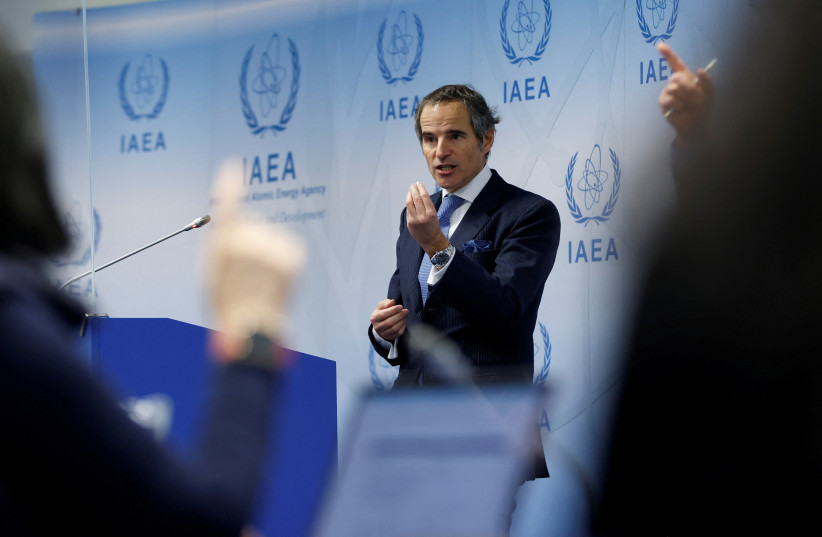The International Atomic Energy Agency Board of Governors slammed Iran on Wednesday evening in an important step that could mean the world is taking seriously what is happening in the Islamic Republic.
The important resolution was opposed by China and Russia, while India, Pakistan and Libya abstained.
This is a significant step in highlighting Iran’s dangerous pursuit of a nuclear weapon and showcases how the ayatollahs are ignoring nuclear norms as the country races to enrich uranium and installs advanced centrifuges.
It appears that Iran will now use the condemnation as an excuse to do what it wanted to do all along: enrich more uranium and work on the production of a nuclear weapon.
This could destabilize the region and lead to growing conflict.

The draft resolution text that was submitted said the board “expresses profound concern that the safeguards issues related to these three undeclared locations remain outstanding due to insufficient substantive cooperation by Iran, despite numerous interactions with the agency.”
The text, seen by Reuters, also said the board “calls upon Iran to act on an urgent basis to fulfill its legal obligations and, without delay, take up the [IAEA] director-general’s offer of further engagement to clarify and resolve all outstanding safeguards issues.”
Indirect talks between Iran and the United States on reviving the 2015 deal have not been held since March.
Prime Minister Naftali Bennett welcomed the decision of the Board of Governors on Wednesday night, calling it “a significant decision that reveals the true face of Iran.”
Iran could face some opposition ahead at the UN Security Council, but from experience, we already know the lay of the land.
Iran will continue to enrich, it will continue to install advanced centrifuges, and it will likely shut down some international monitoring. It will launch more drone and rocket attacks against Iraq and threaten Israel from Yemen, Iraq, Syria, Lebanon and directly from Iran.
This is already clear because just as the IAEA Board of Governors news broke, there was news of a drone attack near Erbil in Iraq, a symbolic strike by Iran near the site of the new US Consulate.
The challenge ahead is to keep up the pressure on Iran. While putting the IAEA conclusions in writing is important in order to set a precedent, much more work must be done.
On the positive side, the overwhelming majority of the Board of Governors has called on Iran to urgently fulfill its legal obligations.
Could this restore Iran’s compliance, though? Iran has made many demands to get back to a deal. The 2015 deal itself offered Iran incentives, and it wasn’t going to last forever but merely postponed Iran’s road toward a nuclear weapon.
That is the main problem.
Iran uses its nuclear program to wring concessions and blackmail the world.
While other countries did develop nuclear weapons and then test them, such as India and Pakistan in the 1990s – and while North Korea continues to develop its dangerous nuclear program – only Iran appears to do so in part with an agenda of blackmail.
Unfortunately, because of Russia and China’s own concerns about the West, these two key states have not come together to encourage Iran to step away from its dangerous destabilizing path. Instead, Russia and China allow Iran to continue to threaten Israel and let loose a nuclear arms race in the region that can ensnare the Gulf, Turkey and others.
Israel believes the time has come for the international community to support the IAEA’s integrity and professionalism and to act against Iran with all the means at its disposal, as the Foreign Ministry has said.
This is indeed the best course of action. However, Iran has shown that it will break every international norm in its behavior. It fires missiles and drones at other countries and has recently illegally seized Greek ships.
All of this illustrates that it is a most dangerous and unreliable country and that it must never be equipped with nuclear weapons or its danger will increase exponentially.
